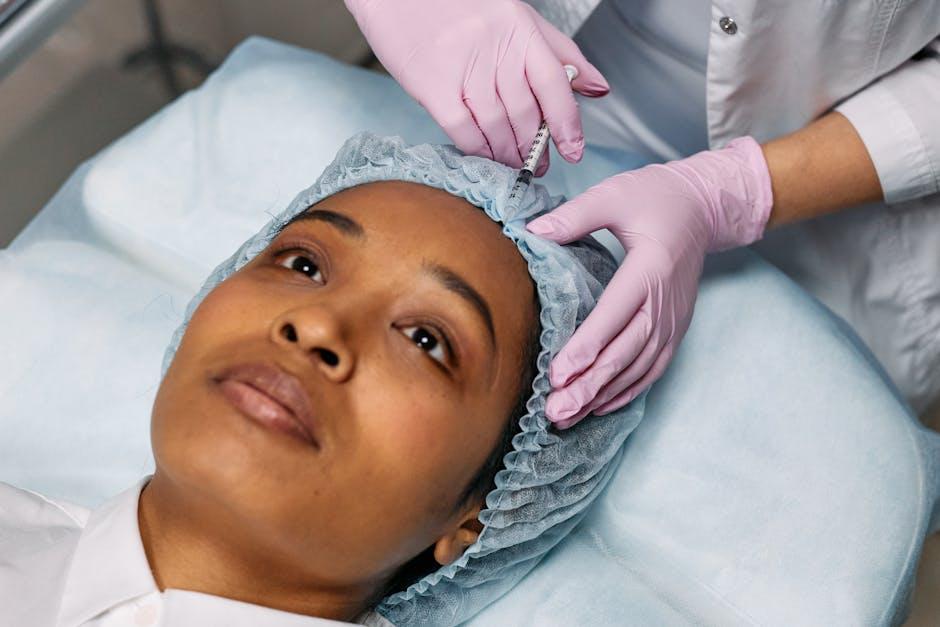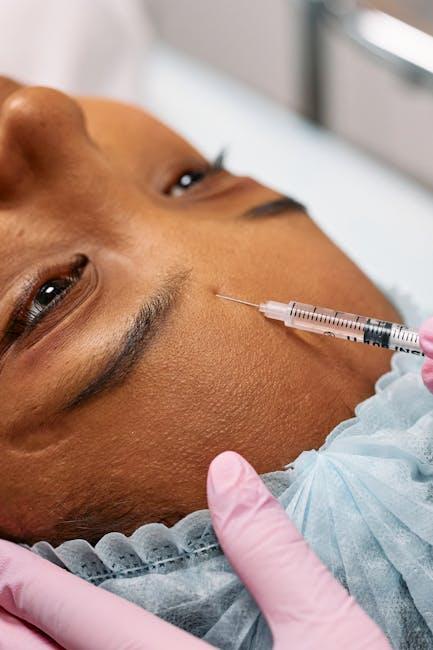
Cosmetic Injectables Under MPs’ Spotlight – Nature
In recent years, the popularity of cosmetic injectables—such as Botox and dermal fillers—has surged dramatically across the UK and worldwide. While these minimally invasive procedures offer numerous aesthetic benefits, they have also attracted renewed scrutiny from policymakers. Recently, Members of Parliament (MPs) have placed cosmetic injectables under their spotlight, calling for tighter regulations and improved safety standards. This article explores the reasons behind this increased attention, the benefits and risks of cosmetic injectables, and what consumers need to know moving forward.
What Are Cosmetic Injectables?
Cosmetic injectables are non-surgical treatments used primarily to reduce the signs of aging, enhance facial features, or correct wrinkles and volume loss. The two most common types are:
- Botox: A neurotoxin that temporarily relaxes muscles to smooth wrinkles, especially around the forehead and eyes.
- Dermal Fillers: Gel-like substances, often made from hyaluronic acid, injected under the skin to restore volume and contour facial structures.
These treatments have become a staple in aesthetic medicine, praised for their minimal downtime and quick results.
Why Are MPs Scrutinizing Cosmetic Injectables?
The rise in cosmetic injectable procedures has prompted MPs to take a closer look due to:
- Safety concerns: Reports of complications such as infections, allergic reactions, and disfigurement.
- Unregulated practitioners: Cases of unqualified individuals administering injectables, increasing risks.
- Informed consent issues: Consumers sometimes lack clear information about risks and realistic outcomes.
- Marketing to vulnerable groups: Aggressive advertising targeting young people and false beauty standards.
Government and Regulatory Responses
Several initiatives have emerged from recent parliamentary discussions:
- Proposals for mandatory licensing of clinics and practitioners.
- Calls for tighter advertising guidelines to restrict misleading claims.
- Enhanced public education campaigns about risks and safety.
- Development of a national registry for cosmetic injectables providers.
Benefits of Cosmetic Injectables
Despite concerns, there are undeniable benefits to cosmetic injectables when used responsibly:
- Minimally invasive: No surgical incisions, scarring, or prolonged recovery.
- Quick results: Patients often see improvements within days.
- Versatility: Can target various concerns, such as wrinkles, volume loss, or facial asymmetry.
- Boost in confidence: Many report improved self-esteem and quality of life.
Important Safety Tips for Consumers
To optimize benefits and minimize risks, follow these practical tips:
- Visit qualified practitioners: Always verify credentials and experience.
- Ask detailed questions: Understand the procedure, ingredients, and expected results.
- Avoid bargain deals: Extremely low prices can be a red flag for poor quality or unlicensed providers.
- Check clinic hygiene and facilities: Ensure the environment is clean and professional.
- Follow aftercare instructions: Proper post-treatment care reduces complication risks.
Case Study: UK’s Growing Cosmetic Injectable Market
The UK market for cosmetic injectables has ballooned over the past decade, with estimated yearly revenues exceeding £250 million by 2023. This growth has been driven by:
- Increased social media influence and beauty trends.
- Advancements in injection technology and techniques.
- Greater acceptance of non-surgical cosmetic procedures.
| Year | Estimated Procedures (UK) | Market Size (£ Millions) |
|---|---|---|
| 2018 | 150,000 | 120 |
| 2020 | 190,000 | 180 |
| 2023 | 250,000 | 255 |
This rapid expansion has amplified calls for tighter regulatory oversight, ensuring both patient safety and ethical marketing.
First-hand Experience: What Patients Say
“I had Botox done for the first time last year and was amazed at how natural the result looked. However, I made sure to research my practitioner extensively and followed all medical advice. The peace of mind was worth it.” – Sarah, 34
“My dermal filler treatment gave me a confidence boost, but I was also careful to avoid social media hype and went with a trusted clinic. I think awareness and education are key before getting injectables.” – James, 42
The Future of Cosmetic Injectables Regulation
With MPs pushing for changes, the future outlook includes:
- Stricter licensing laws: Ensuring providers meet professional standards.
- Public registries: Allowing consumers to find accredited clinics easily.
- Stronger penalties: For unlicensed practice and misleading marketing.
- Educational resources: Campaigns to inform the public about risks and benefits.
Conclusion
Cosmetic injectables continue to grow in popularity due to their convenience and effectiveness. However, the spotlight cast by MPs highlights a growing need for improved safety measures, regulation, and public education. As the UK navigates this evolving landscape, consumers must remain informed and cautious, choosing qualified professionals and realistic expectations. With the right balance, cosmetic injectables can continue to offer valuable aesthetic benefits while safeguarding health and wellbeing.


